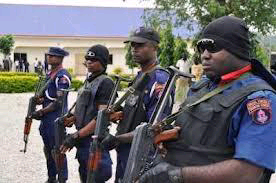News
BREAKING: Sacked Ebonyi governor makes U-turn, reverses uncomplimentary words against judge, tenders apology to NBA


The governor of Ebonyi state, David Umahi on Wednesday reversed the alleged uncomplimentary statement made against a judge of the federal high court sitting in Abuja, justice Inyang Ekwo and tendered an apology to the Nigeria Barr Association, NBA.
Umahi apologised while addressing over two thousand members of the ruling All Progressives Congress, APC, in Ebonyi state at a solidarity rally that took place at the Udensi roundabout, staged to declare their support and loyalty to the governor.
He said that he has mobilized over seventeen (17) SANs to Appeal the judgement of the federal high court sitting in Abuja led by justice Inyang Ekwo, wherein he was sacked for defecting from the opposition party, Peoples Democratic Party, PDP, to the ruling APC.
Umahi said he has no regrets in defecting to the ruling APC and threatened to engage in battle with the opposition party, Peoples Democratic Party, PDP in Ebonyi State, especially for trying to distract his administration.
“I’m still the governor of Ebonyi state and I’m still working. I said the lawyers of PDP are the ones doing forum shopping and I’m going to write against the lawyers to NBA to discipline them because the judge was misled. The blame was not on the judge. The blame is on the PDP lawyers who misled the judge.
“And I’m using the opportunity to let Nigerians know that nobody castigated the judge and we will not and because the matter was not before any judge.
“Today, we have appealed the judgement. We have done three things; we have done the appeal at Enugu, and when I say that, we have two judgements, I say that the judgement in Ebonyi state, which has equal powers with that of Abuja. We said we will obey the judgement in Ebonyi state. We will appeal the judgement of Abuja. We didn’t say we will disobey otherwise we would have not appealed.
“We are before the Appeal of Enugu state and that of Abuja. We have also filed a stay of execution. So, we are still the governor and deputy governor of Ebonyi state” he stated



